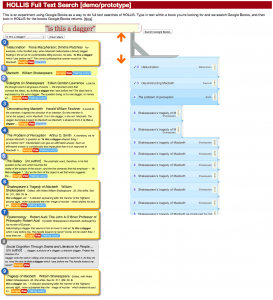July 26, 2014
Why I have not been blogging much: it’s my book’s fault and more
My blogging has gone way down in frequency and probably in quality. I think there are two reasons.
First, I’ve been wrapped up in trying to plot a new book. I’ve known for about three years the set of things I want to write about, but I’ve had my usual difficult time figuring out what the book is actually about. For example, when I was planning Everything is Miscellaneous, I knew that I wanted to write about the importance of metadata, but it took a couple of years to figure out that it wasn’t a book about metadata, or a book about the virtue of messiness, or two dozen other attempts at a top line.
I’m going through the same process now. The process itself consists of me writing a summary of each chapter. Except they’re not summaries. They’re like the article version of each chapter and usually work about to about 2,000 words. That’s because a chapter is more like a path than a list, and I can’t tell what’s on the path until I walk it. Given that I work for a living, each complete iteration can take me 2-3 months. And then I realize that I have it all wrong.
I don’t feel comfortable going through this process in public. My investment of time into these book summaries is evidence of how seriously I take them, but my experience shows that nineteen times out of twenty, what I thought was a good idea is a very bad idea. It’s embarrassing. So, I don’t show these drafts even to the brilliant, warm and forgiving Berkman Book Club — a group of Berkfolk writing books — not only because it’s embarrassing but because I don’t want to inflict 10,000 words on them when I know the odds are that I’m going to do a thorough re-write starting tomorrow. The only people who see these drafts are my literary agents and friends David Miller and Lisa Adams, who are crucial critics in helping me to see what’s wrong and right in what I’ve done, and working out the next approach.
Anyway, I’ve been very focused for the past couple of months on figuring out this next book. I think I’m getting closer. But I always think that.
The second reason I haven’t been blogging much: I’ve been mildly depressed. No cause for alarm. It’s situational and it’s getting better. I’ve been looking for a new job because the Harvard Library Innovation Lab that I’ve co-directed, with the fabulous Kim Dulin, for almost five years has been given a new mission. I’m very proud of what we — mainly the amazing developers who are actually more like innovation fellows — have done, and I’m very sorry to leave. Facing unemployment hasn’t helped my mood. There have been some other stresses as well. So: somewhat depressed. And that makes it harder for me to post to my blog for some reason.
I thought you might want to know, not that anyone cares [Sniffles, idly kicks at a stone in the ground, waits for a hug].









